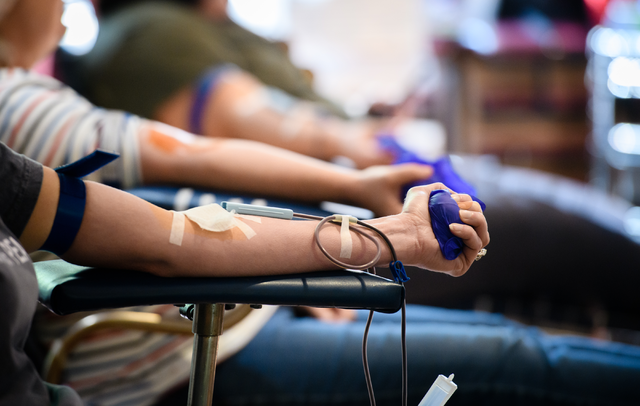B-roll and interview footage of Marisa Marques, M.D., director of Transfusion Services at the University of Alabama at Birmingham Hospital, can be found here.
The need for blood supplies is constant across the United States, and the University of Alabama at Birmingham Hospital is engaging the public and asking people to consider scheduling a time to donate blood if able.
“There is no substitute for human blood to save countless lives of individuals with a variety of conditions such as leukemia, trauma, heart and sickle cell disease, etc.; just as important, hundreds of pints of blood must be available in hospitals at all times, since many lifesaving transfusions are emergent,” said Marisa Marques, M.D., director of Transfusion Services at the University of Alabama at Birmingham Hospital. “It may be too late to donate when the need arises, because it takes close to a week to do all the tests in the donor to ensure the blood is safe for everyone. I urge people to donate at this time and regularly thereafter.”
 UAB is joining the Red Cross in encouraging the public to donate blood now.To find a drive or facility near you, go to the American Red Cross website.
UAB is joining the Red Cross in encouraging the public to donate blood now.To find a drive or facility near you, go to the American Red Cross website.
Hospitals need suitable reserves for those patients who need a blood transfusion, such as those who have cancer or sickle cell disease or are undergoing emergency surgery, trauma victims, or post-partum women, among others, and proactively fulfilling supply before a critical need strikes is paramount.
Donors of all blood types are needed. A blood donor card or driver’s license or two other forms of identification are needed to donate. The process usually takes less than 40 minutes. Individuals who are at least 17 years of age, weigh at least 110 pounds and are in generally good health may be eligible to donate blood.